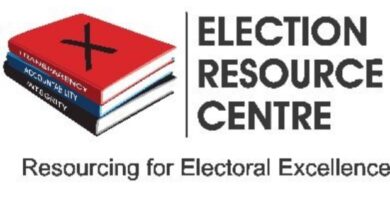Sunshine Cinema screenings empower Lupane communities on governance

Dumisile Tshuma
Sunshine Cinema’s recent community screenings in Lupane have ignited a wave of empowerment, as residents from Kusile Rural District Council (KRDC) and Lupane Local Board (LLB) demand greater accountability from local authorities.
Sunshine Cinema hosted a Focus Group Discussion in Lupane, where residents commended the screenings for enhancing their understanding of social accountability and media literacy. The initiative has equipped the community with vital knowledge on Sections 61 and 62 of Zimbabwe’s Constitution, which cover freedom of expression and access to information.
Kusile resident Sarah Moyo highlighted the impact the screenings have had on their approach to local governance. She said the community has begun to question financial transparency within the KRDC.
“We’ve requested information from KRDC on how much revenue has been collected and how it’s been used.For too long, we’ve been left in the dark about these issues,” she said.
Local activist Tinashe Chikanda echoed Moyo’s concerns. He noted that the screenings had empowered residents to inquire about the processes behind land repossession in Lupane.
“We’ve written to LLB seeking clarity on how many stands have been repossessed and the resolution that passed the recommendation for repossession.We want transparency in these decisions to ensure they serve the community’s best interest,” said Chikanda.
Traditional leader Mphathi Nkiwane emphasised the broader impact of the screenings, acknowledging how the project has inspired residents to hold local authorities accountable. He said the initiative has been an eye-opener for the community.
“We now realize we have the right to question our leaders and demand accountability,” he said.
Despite the initiative’s success, Nkiwane stressed the need for it to reach more remote areas of Lupane. He said leaders and residents in these regions would also benefit from the knowledge provided by Sunshine Cinema.
“The information shared here is invaluable and should be available to everyone, not just those in accessible areas,” he added.
Sunshine Ambassador for Lupane Zibusiso Moyo explained how cinema has been a powerful medium in bridging the gap between governance and the community. The films featured in the screenings depict real-life governance issues, sparking discussion among viewers.
“By using cinema, we make complex governance issues more relatable.We want to encourage active participation in governance,”Moyo said.
Tendai Masuku, a young Lupane resident, added that the screenings have boosted their confidence in engaging with local officials. She said the initiative has provided residents with a new sense of empowerment.
“Before, we didn’t know how to approach our leaders, but now we feel empowered to speak up,” she said.
While the response from local authorities has been mixed, some officials have recognized the positive impact of the screenings. A KRDC representative, who preferred to remain anonymous, said that community engagement is vital for development.
“Community involvement is essential for development.However, it is important that this engagement remains constructive,” said the official.
As the Sunshine Cinema project continues to grow, traditional leaders like Nkiwane hope that the initiative will expand its reach to even the most remote communities. They believe the screenings have the potential to foster a more informed and engaged citizenry across rural Zimbabwe.
The call for broader access to the screenings highlights the community’s desire for sustained engagement and empowerment. With residents continuing to push for transparency and good governance, the Sunshine Cinema initiative is proving to be a vital tool in transforming the relationship between citizens and local authorities.




